Eshu The Trickster: Mischievous Mediator Between Heaven And Earth In Beliefs Of Yoruba People
A. Sutherland - AncientPages - In mythology, Eshu is a spirit (Orisha) of African origin, from the religious traditions of the Yoruba people in present-day Nigeria. Eshu is the most famous trickster god who uses various disguises. He is the magician, the troublemaker, and sorcerer who has many faces and may behave either favorably or ominously, threatening people with his unpleasant mischief.
As religion has spread around the world, the name of this Orisha has varied in different locations. In Benin, he is known as Legba or Elegba and in Afro-Brazilian religions, his name is Papa Legba.
Like other tricksters (Stikini, Anansi, Loki, Pukwudgie, Coyote, Iktomi), Eshu doesn't follow rules. He is responsible for all clashes between humans and between gods and humans.
He is the messenger and general intermediary between the gods and humans, and, like the Greek god, Hermes (also occasionally a trickster) he is the god of thresholds. He has never good intentions and likes to destroy or change things around him.
He is known for his attempts to bring chaos into order by trying to persuade the sun and moon to change their places, thus reversing the order of things and causing terrible consequences for life on earth. Eshu is the sneakiest of all divine spirits, usually described as a wandering, homeless Orisha that lives on marketplaces, thresholds of houses and the crossroads.
Eshu Destroys A Long-Lasting Friendship
There are many legends about Eshu and his bad deeds. One legend tells about two neighbors, who cultivated their small plots of land and lived in a long-lasting friendship. Eshu has the trickster’s nature so he manages to destroy god relations between these two men, who are always seen together and even dress alike.
He divides their farms wearing a hat, which is black on one side and white on the other. Then he puts his pipe at the back of his head and hooks his club over one shoulder so that it hangs down his back.
To achieve his goal in this curious disguise, Eshu passed by and the two friends started to squabble with each other about the direction the stranger took and what the color of his hat really was.
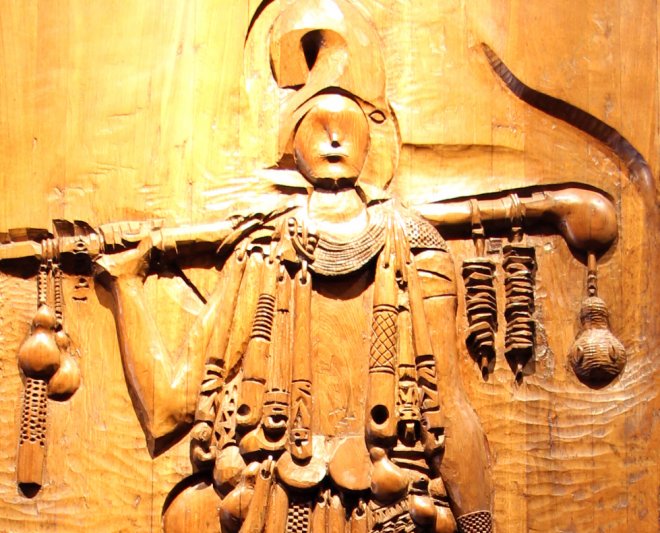 Eshu in a carving by Carybé.
Eshu in a carving by Carybé.
Each of the friends accused the other of lying and their dispute was so hot that it reached the king, who summoned the two men.
Suddenly, the evil Eshu appeared saying that neither of the two men was a liar but unfortunately both were fools. Eshu confessed to his bad trick but he could not be punished by the king because he was divine and untouchable.
Leaving the place, he set fire to many houses leaving people homeless.
See also:
Oshun Goddess Of Yoruba People Who Brings All Things That Make Life Worth Living
Shango: Powerful Thunder God And Symbol Of Kingship Among Yoruba People Of West Africa
Ife Head: Significance Of The Head ‘Ori’ In Yoruba Ancient And Present Beliefs
Neither a king nor the ordinary people can question such a powerful divine spirit as Eshu, who is the most complex figure among the Orisha. It is said he has both good and evil properties. He represents a link between Heaven and Earth.
He is the so-called “inspector general” and messenger who reports to Olodumare (the Supreme Creator in the Yoruba pantheon) on the actions of other gods and those of human beings. Eshu investigates, checks, and reports if the people worship the gods properly and sacrifices are correct.
He is believed to hold the power of life and death, depending on the kind of reports he makes to Olodumare. Consequently, the Yoruba people strive to be on good terms with him. They venerate him whenever they venerate any other Orisha. They try to avoid anything that may annoy him. For example, should some mishaps occur, they are quick to make good what may have gone wrong.
This is why the trickster Eshu has always his place in every shrine.
Written by – A. Sutherland - AncientPages.com Senior Staff Writer
Copyright © AncientPages.com All rights reserved. This material may not be published, broadcast, rewritten or redistributed in whole or part without the express written permission of AncientPages.com
More From Ancient Pages
-
 Sacred Number Four – Perfect Number And Deep Meaning Behind It
Ancient Symbols | Nov 7, 2017
Sacred Number Four – Perfect Number And Deep Meaning Behind It
Ancient Symbols | Nov 7, 2017 -
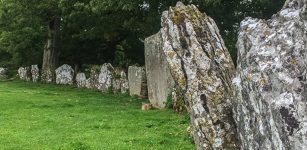 ‘Lios na Grainsi’ – Ireland’s Largest Stone Circle
Civilizations | Feb 3, 2016
‘Lios na Grainsi’ – Ireland’s Largest Stone Circle
Civilizations | Feb 3, 2016 -
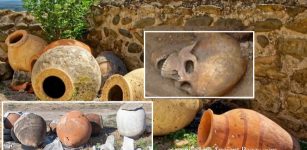 Researchers Develop New Ways Of Visualizing Ancient Small Objects By Combining Technologies
Archaeology | Apr 20, 2022
Researchers Develop New Ways Of Visualizing Ancient Small Objects By Combining Technologies
Archaeology | Apr 20, 2022 -
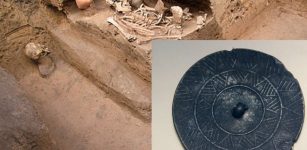 Qijia Culture – Its Disappearance Remains An Ancient Mystery
Civilizations | Feb 5, 2021
Qijia Culture – Its Disappearance Remains An Ancient Mystery
Civilizations | Feb 5, 2021 -
 Gonzalo Guerrero – The Renegade Who Joined The Maya Against His Own People
Featured Stories | Feb 27, 2020
Gonzalo Guerrero – The Renegade Who Joined The Maya Against His Own People
Featured Stories | Feb 27, 2020 -
 Chumash Indians Used Shell Beads As Money 2,000 Years Ago – New Study
Archaeology | Jan 30, 2021
Chumash Indians Used Shell Beads As Money 2,000 Years Ago – New Study
Archaeology | Jan 30, 2021 -
 Rock-Hewn Ancient Churches Of Lalibela
Civilizations | Aug 22, 2018
Rock-Hewn Ancient Churches Of Lalibela
Civilizations | Aug 22, 2018 -
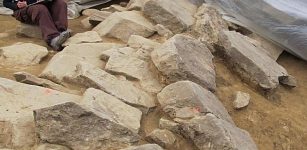 Zyndram’s Hill: Oldest-Known Stone Wall – A Masterpiece Of Architecture Found In Poland
Civilizations | Sep 15, 2015
Zyndram’s Hill: Oldest-Known Stone Wall – A Masterpiece Of Architecture Found In Poland
Civilizations | Sep 15, 2015 -
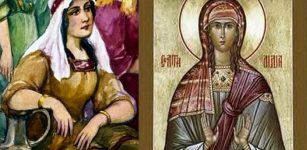 Biblical Lydia ‘Woman Of Purple’ Who Run Her Own Business
Biblical Mysteries | Apr 9, 2019
Biblical Lydia ‘Woman Of Purple’ Who Run Her Own Business
Biblical Mysteries | Apr 9, 2019 -
 Ogdoad Of Hermopolis – Ancient Egyptian Concept Of Eternal And Primeval Forces
Egyptian Mythology | May 16, 2019
Ogdoad Of Hermopolis – Ancient Egyptian Concept Of Eternal And Primeval Forces
Egyptian Mythology | May 16, 2019 -
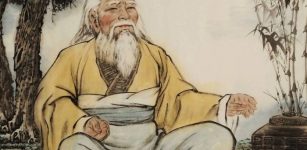 Lao Tzu: Legendary Thinker And Founder Of Taoism Who Advocated Modesty, Self-Restraint And Balance
Chinese Mythology | Jul 13, 2019
Lao Tzu: Legendary Thinker And Founder Of Taoism Who Advocated Modesty, Self-Restraint And Balance
Chinese Mythology | Jul 13, 2019 -
 Secrets Of 160,000 Ancient Texts Kept In The Abbey Library Of St. Gall May Soon Be Unlocked By AI
Linguistic Discoveries | Aug 23, 2021
Secrets Of 160,000 Ancient Texts Kept In The Abbey Library Of St. Gall May Soon Be Unlocked By AI
Linguistic Discoveries | Aug 23, 2021 -
 Will The Oven Bricks Of The Tudor Warship The Mary Rose Be Preserved Before It’s Too Late?
Artifacts | Apr 7, 2022
Will The Oven Bricks Of The Tudor Warship The Mary Rose Be Preserved Before It’s Too Late?
Artifacts | Apr 7, 2022 -
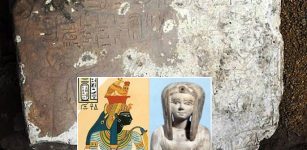 Limestone Stela Of Liberation Discovered In Kom Ombo Temple In Aswan, Egypt
Archaeology | Oct 17, 2018
Limestone Stela Of Liberation Discovered In Kom Ombo Temple In Aswan, Egypt
Archaeology | Oct 17, 2018 -
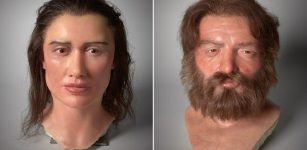 Facial Reconstruction Of Ancient Inhabitants Of Sagalassos Make Them Almost Real
Archaeology | May 31, 2019
Facial Reconstruction Of Ancient Inhabitants Of Sagalassos Make Them Almost Real
Archaeology | May 31, 2019 -
 More Than 2,500 Years Old Gallic Tombs Unearthed In Nîmes, Southern France
Archaeology | Aug 17, 2020
More Than 2,500 Years Old Gallic Tombs Unearthed In Nîmes, Southern France
Archaeology | Aug 17, 2020 -
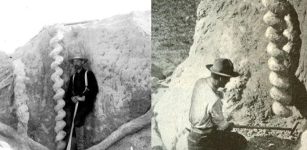 ‘Devil’s Corkscrews’: Extraordinary Giant Spirals Of Nebraska Rocky Mountains
Featured Stories | Apr 23, 2023
‘Devil’s Corkscrews’: Extraordinary Giant Spirals Of Nebraska Rocky Mountains
Featured Stories | Apr 23, 2023 -
 10 Surprising Facts About The Neanderthals Who Were Not As Primitive As Previously Thought
Ancient History Facts | May 6, 2017
10 Surprising Facts About The Neanderthals Who Were Not As Primitive As Previously Thought
Ancient History Facts | May 6, 2017 -
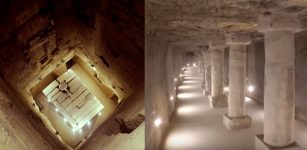 Magnificent Interior Of The Djoser Pyramid Revealed In Stunning Images And Video
News | Mar 14, 2020
Magnificent Interior Of The Djoser Pyramid Revealed In Stunning Images And Video
News | Mar 14, 2020 -
 Ancient Liangzhu Culture Collapsed Due To Climate Change – New Study Says
Archaeology | Nov 25, 2021
Ancient Liangzhu Culture Collapsed Due To Climate Change – New Study Says
Archaeology | Nov 25, 2021

